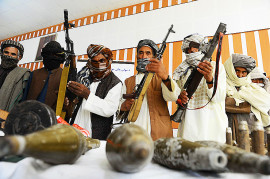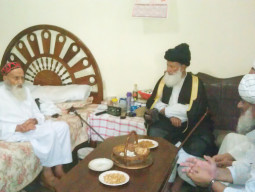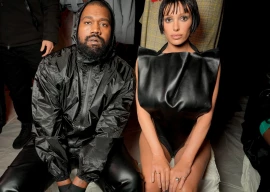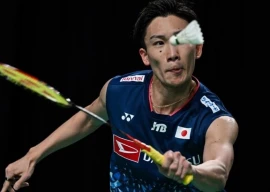
An enigma resides today in the Prime Minister’s House.
He is a man who has persistently called for a policy of non-interference and normalisation towards Afghanistan and India. Last month, in New York, he made a bold expression of contrition, stating that “we have made mistakes” in dealing with neighbouring states. Yet, in the same speech, he went out of his way to avoid naming the terrorists who slaughter his own people and security forces virtually each day — terrorists who decapitate soldiers, shoot girls like Malala and kill Shias with impunity.
He is a man who, as a victim of praetorianism, has railed against dictatorship and pledged to institute civilian control over the military. Yet, in his first four months back in office, he has only convened the Defence Committee of the Cabinet (DCC) once, instead relying on adhoc meetings with generals. For no good reason, save for a possible desire to make his own job harder, he has balked at appointing ambassadors to the United Kingdom and the United States, and retained the defence and foreign ministry portfolios for himself.
He is a man who has strongly spoken out against the killing of Akbar Bugti and military operations in Balochistan, yet has done little to form a cabinet in Balochistan or abate ‘kill and dump’.
He is a man who prides himself on the ‘decisive’ step he took in deciding to test a nuclear weapon in 1998, but has tried to pass the buck on counterterrorism to an all-parties conference.
For the past four months, Prime Minister Nawaz Sharif has sought to defer tough decisions when it comes to the war against the Tehreek-e-Taliban Pakistan (TTP) and their allies. It is now clear that this is a war he prefers to avoid, aiming to step on neither the army nor the TTP’s toes and instead, win space to improve the economy.
But with the apparent end of the Kayani era, this is now Mr Sharif’s war. By the end of November, the sitting army chief will be a Sharif appointee. The animus the TTP directed at General Kayani and the previous civilian government will likely be redirected toward Mr Sharif and the new army chief. If Mr Sharif does not take the fight to the TTP, the TTP will come to him — with arms wide open and bombs strapped to their chests.
Mr Sharif will have to stop dilly-dallying on the appointment of the chairman of the Joint Chiefs of Staff Committee and the chief of army staff. Once these appointments are made, he will need to convene the Cabinet Committee on National Security (formerly, the DCC) with regularity and authorise the formation of a permanent secretariat for the body, led by a national security adviser, that can build a comprehensive national security strategy in consultation with the military and intelligence services. Though the government plans on releasing a counterterrorism strategy — deferred again to December — a national security strategy is a prerequisite for a counterterrorism strategy. Mr Sharif knows this. He knows that Pakistan’s domestic terrorism problem is intimately linked to its historic policies towards Afghanistan, India and the United States. And he knows that, ultimately, Pakistan will have to confront the mistakes of its past with a new paradigm for the future.
But peace and stability in the region cannot simply be willed into reality. Indeed, they might not even be possible. By the end of next year, Mr Sharif could be confronted with the fallout from an Afghan civil war — a civil war that bleeds into the Federally Administered Tribal Areas (Fata) and allows the TTP and the Lashkar-e-Jhangvi to fester.
For Pakistan’s border regions to see peace, a political settlement in Afghanistan that includes the Taliban is necessary. But peace in Fata and Khyber-Pakhtunkhwa also requires confronting the TTP’s core — an uncompromising band of murderers hell-bent on imposing their twisted brand of sharia on the rest of the country. Feigning talks with the TTP could have the tactical benefit of fomenting divisions within the organisation. But as for the group’s nucleus, led by Hakimullah Mehsud, Mr Sharif has no choice but to engage it kinetically to the finish.
Published in The Express Tribune, October 9th, 2013.
Like Opinion & Editorial on Facebook, follow @ETOpEd on Twitter to receive all updates on all our daily pieces.
COMMENTS (7)
Comments are moderated and generally will be posted if they are on-topic and not abusive.
For more information, please see our Comments FAQ



















































If Nawaz Sharif does not own this and does not act dicisively, then he will prove himself to be almost as bad as Imran Khan, who has an appeasement policy toward Islamic extremists who have destroyed the country.
Rest assured, Pakistan will be more talibanised during Mian Sahab's time.
Sharif knows his constituency that voted him into power, has sympathy towards TTP! He has to disown his constituency to take fight to TTP. He is afraid to that,though this time Army has no confusion that they will have to fight this war,if not today then tomorrow when TTP has fortified its position. Wake up Sharif!
Sharif owns this war, from the other side.
A person's innate nature cannot be changed. Nawaz Sharif was never a leader with a grand vision. He can go as far as 'laptop scheme,yellow cab scheme'. While unfortunately for this crisis, we need a 'master tactician'...so don't pin any hope,for one is bound to be disappointed.